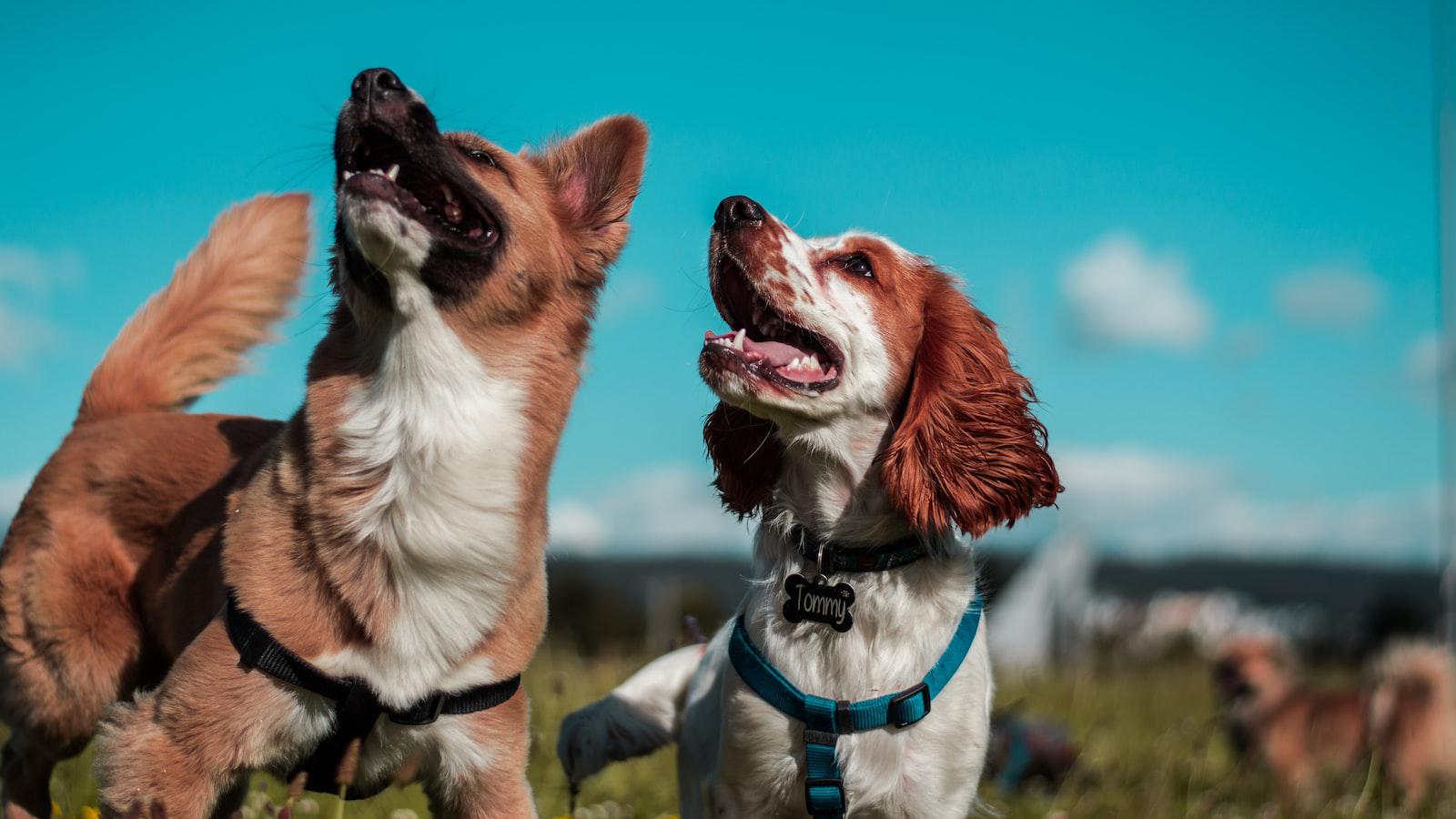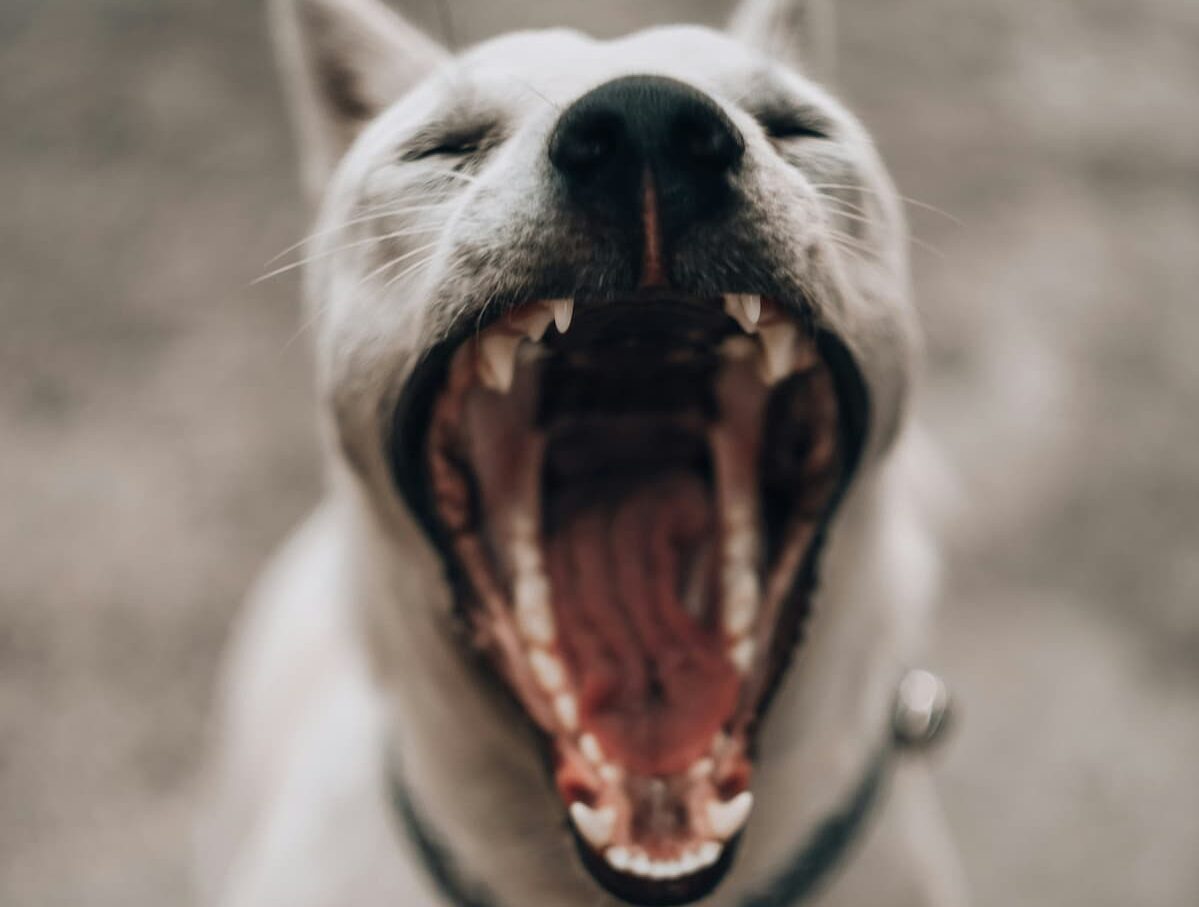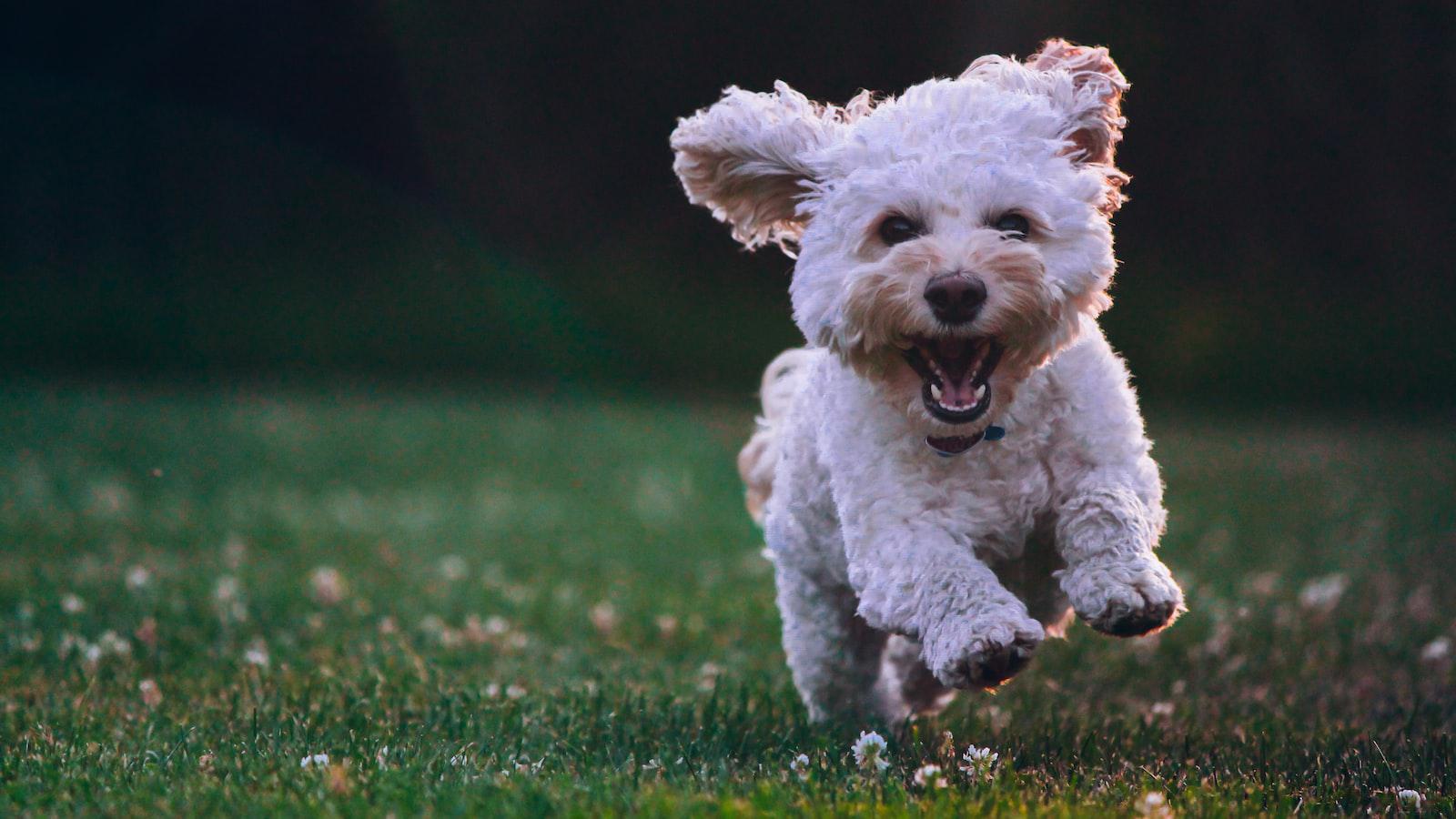Have you ever noticed that peculiar fishy smell coming from your furry companion’s breath?
It’s a common occurrence for many dog owners, and it has certainly put off a lot of people off their meals.
But why does dog breath smell like fish?
This article has all the gross answers.
Why Does My Dog’s Breath Smell Like Fish?
Have you ever wondered why your furry friend’s breath smells like fish?
It’s not exactly the most pleasant odor to be greeted with when your pup comes in for a slobbery kiss.
But fear not, there’s usually a logical explanation behind this stinky situation!
Here are some surprisingly fascinating reasons behind your pup’s fishy breath:
One common reason for a fishy breath in dogs is dental hygiene.
Just like humans, dogs can develop plaque and tartar buildup on their teeth, which can lead to gum disease and bacterial infections.
When these bacteria multiply and thrive, they release unpleasant odors, resulting in that fishy smell.
If your pup’s breath smells like fish, it might be time to schedule a dental cleaning with your veterinarian and start implementing a regular teeth brushing routine.
Remember, prevention is always better than cure!
Another potential cause for fishy breath in dogs is diet.
What goes into your dog’s belly can significantly impact their oral health and consequently their breath.
A diet rich in fish-based ingredients, such as salmon or sardines, can sometimes cause the breath to take on a fishy aroma.
These ingredients contain oils that can linger in your pup’s mouth, leading to that not-so-pleasant smell.
If you suspect that your dog’s diet might be the culprit, consider switching to a different protein source and consult with your vet for advice on the best diet options for your furry friend.
In some cases, fishy breath can also be an indication of an underlying medical condition.
Liver or kidney disease, for example, can cause an imbalance of chemicals in the body, resulting in an unusual breath odor.
If you notice that your dog’s breath consistently smells like fish, it’s important to reach out to your veterinarian for a check-up.
They can evaluate your pup’s overall health and determine if there is an underlying condition that needs to be addressed.
Remember, detecting and managing any potential health issues early on can greatly improve your dog’s quality of life.
Anal Gland Issues and Fishy Breath
Strangely enough, anal gland problems can also cause fishy breath in your dog.
Anal glands, or anal sacs, are small sacs located on either side of a dog’s anus.
They have a strong, musky odor, and their primary purpose is to secrete a scent that helps dogs communicate and mark their territory.
Typically, when a dog defecates, the pressure applied to these sacs allows them to release a small amount of their scent with the feces.
However, when dogs experience issues with their anal glands, it can lead to a foul smell that can make your pup’s breath smell fishy too.
There are a few common reasons why your dog’s anal glands may be causing their breath to smell like fish.
One possibility is that the glands are impacted, meaning the fluid inside is not being properly released.
This can result in discomfort for your furry friend and may even lead to infection if left untreated.
Another reason could be an infection in the anal glands themselves, which can cause a more pungent odor.
In some cases, a dog’s anal glands may also become abscessed, which requires immediate veterinary attention to prevent further complications.
If you notice your dog’s breath has taken on a distinct fishy smell, it’s essential to have them examined by a veterinarian to determine the underlying cause.
They can manually express the anal glands, check for any infections or abscesses, and provide appropriate treatment based on their findings.
Additionally, keeping your dog’s anal gland area clean and ensuring they maintain a healthy diet and regular exercise routine may help prevent future issues.
Remember, a little extra care and attention to your pup’s anal glands can go a long way in keeping their breath smelling fresh and fish-free!
Effective Remedies to Combat Fishy Canine Breath
Is your dog’s fishy breath putting a damper on your precious moments?
Here are some effective remedies to combat that fishy canine breath:
First and foremost, it’s important to address the underlying causes of the fishy odor.
One of the most common culprits is poor dental hygiene.
Just like humans, dogs can develop plaque and tartar buildup, leading to dental issues such as gingivitis and periodontal disease.
This buildup can produce a pungent smell that resembles fish.
Regular brushing of your dog’s teeth with a canine-friendly toothbrush and toothpaste can help remove plaque and maintain their oral health.
Another reason why your dog’s breath may smell like fish is because of their diet.
Certain types of food, particularly those high in fish or fish byproducts, can contribute to an unpleasant odor.
If you’ve recently switched your furry friend’s food and noticed a change in their breath, it might be worth considering an alternative diet.
Consult with your veterinarian to find the best food options for your dog’s specific needs and preferences.
FAQ
Q: Why does my dog’s breath smell like fish?
A: Ah, the age-old mystery of fishy dog breath!
Here’s the scoop: various factors can contribute to that distinct aromatic experience.
First off, it could be linked to your dog’s diet. Feeding them certain types of fish-based foods might cause their breath to reflect that particular scent.
So, if Fido recently indulged in a seafood-flavored feast, that could be the culprit.
Q: But what if my dog’s not consuming fish-based meals?
A: Fair question!
Even if your buddy doesn’t eat fishy grub, there’s still a chance their breath channels that underwater aroma.
One possibility is that dogs have different enzymes in their digestive system, which break down their food in a way that can create fishy byproducts.
Q: Wow, that’s fascinating!
Are there any other factors at play here?
A: Absolutely!
Another prominent factor is dental hygiene, or lack thereof.
If Sparky’s pearly whites aren’t receiving proper care, it can cause a buildup of bacteria in their mouth, including plaque and tartar.
The presence of these nasty substances can cause a fishy odor to emanate from their breath.
Regular teeth brushing and professional cleanings can help keep that scent at bay.
Q: Can bad breath in dogs be a sign of a more serious issue?
A: Unfortunately, yes.
Though it’s often nothing to fret over, persistent fishy breath can sometimes indicate an underlying health problem.
For instance, kidney issues or gastrointestinal disorders could manifest as exceptionally strong odors.
If you notice an ongoing, unusually strong fishy smell, it’s wise to consult with your veterinarian to rule out any potential concerns.
Q: Is there anything I can do to lessen the fishy breath for my canine pal?
A: Absolutely!
Here are a few tricks that might help freshen up your fur baby’s breath.
Firstly, regular dental care is key; brushing your dog’s teeth, investing in dental chews, and providing them with appropriate dental care products can make a noticeable difference.
Additionally, opting for a balanced and high-quality diet may help combat unpleasant odors.
And don’t forget, regular wellness check-ups with your vet can ensure that any underlying issues are addressed promptly.
Summing Up
And those are the peculiar reasons behind why our beloved furry friends’ breath sometimes smells like fish.
Remember, dogs have a unique set of dental needs just like us, so it’s crucial to keep up with their oral hygiene.
Regular teeth brushing with dog-friendly toothpaste, as well as annual check-ups with their veterinarian, can help prevent not only the fishy breath but also more serious dental issues.
But hey, let’s not be too hard on our four-legged pals.
After all, they exhibit some pretty amazing abilities, like detecting diseases and tracking missing persons.
So, if we occasionally catch a whiff of something a little fishy when they come to greet us with tail-wagging enthusiasm, let’s just remember the incredible joy they bring to our lives.
Next time you find yourself snuggling up with your furry companion and smelling a hint of sea creatures, give them a gentle pat and a loving look.
Appreciate the unique charm they bring to our homes, fishy breath and all.
So, next time you find yourself wondering, “Why does my dog’s breath smell like fish?”
just know that it’s not only your pup; many dogs have this odorous quirk.
Embrace it, understand it, and let your furry friend continue to bring you endless love and companionship.












